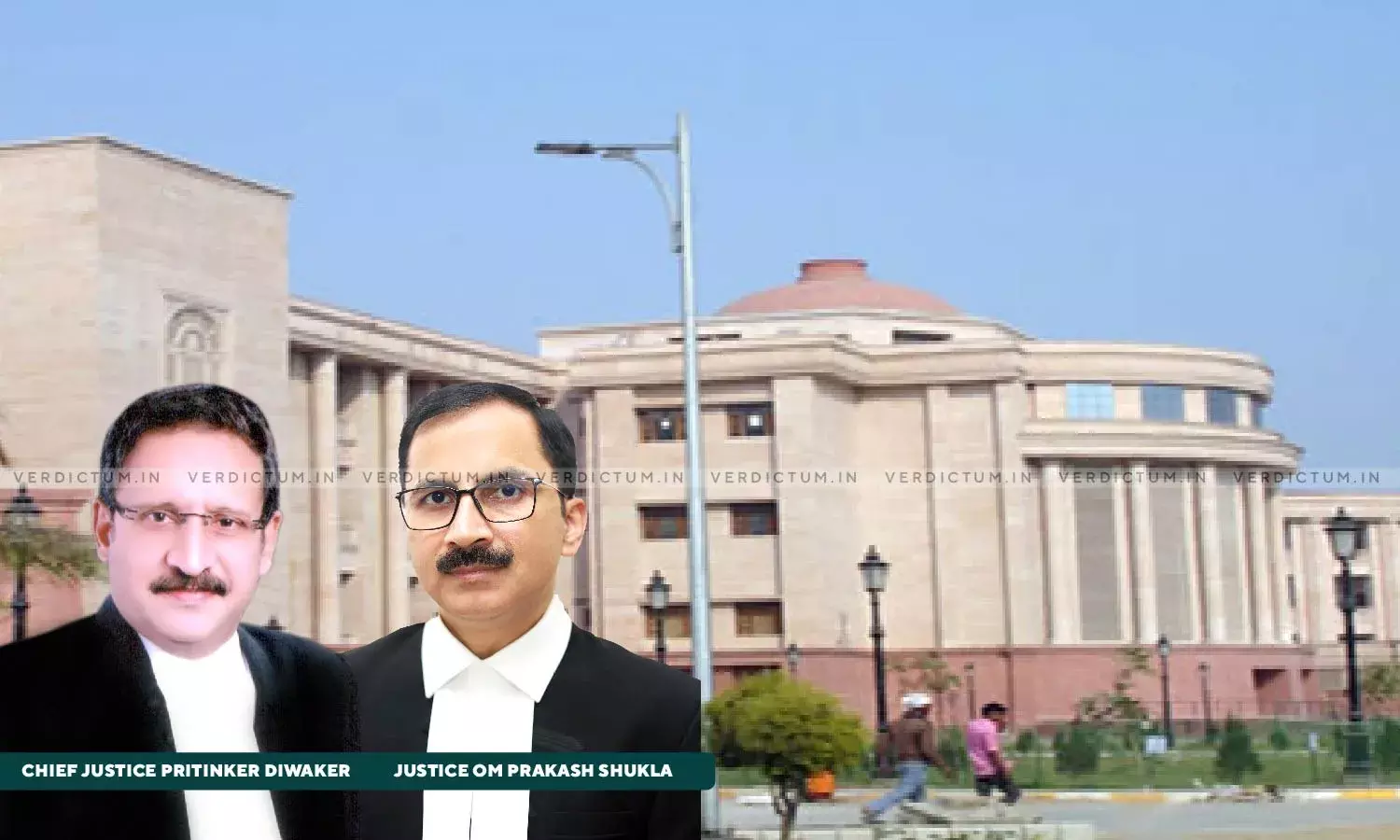Eye-Witness Testimonies Had Material Contradictions: Allahabad HC Quashes Conviction Order Under Explosive Substance Act
The Allahabad High Court, Lucknow Bench, quashed the order passed by the Trial Court against an individual convicted under Sections 302 and 34 of the Indian Penal Code (IPC) and Section 5 of the Explosive Substances Act, 1908 (ESA).
The Court noted that the testimonies of the sons of the deceased had material contradictions, and the medical evidence did not support the prosecution's case.
The Bench, headed by Chief Justice Pritinker Diwaker and comprising Justice Om Prakash Shukla, observed, “Thorough examination of the evidence makes it clear that the prosecution has failed to prove its case beyond all reasonable doubts.”
Advocates Rohit Tripathi, Sajjad Husain, and Syed Zulfiqar Husain Naqvi appeared for the Appellant, and Advocates Irfan Khan, Pawan Mishra, and Badrul Hasan appeared for the Respondents.
A Criminal Appeal was filed challenging the judgment and order of the Trial Court arising out of a case registered under Sections 302 and 34 of the Indian Penal Code (IPC) and Section 5 of the Explosive Substances Act, 1908 (ESA). The Trial Court sentenced him to life imprisonment with a fine of Rs.10,000/- and ten years rigorous imprisonment with a fine of Rs.5000/-. Per the Prosecution’s case, the Appellant and co-accused, armed with bombs and weapons, entered the dairy where the deceased Zaheer Muneer and others were sleeping and caused various injuries to the deceased, including burn injuries caused by the explosion of crude bombs.
The Court noted that from the examination of the evidence, it is clear that the prosecution had failed to prove its case beyond reasonable doubt. The Court observed that the testimonies of the deceased’s sons did not inspire confidence and were weak. There were several material contradictions in the testimonies of the sons. Additionally, the Court also observed that the Autopsy Surgeon also opined that the burn injuries found on the deceased could not have been caused due to the explosion of the bomb. Thus, the medical evidence also does not support the prosecution case. Therefore, the Court noted that the Appellant cannot be convicted based on such evidence.
“Further, the Autopsy Surgeon has also opined that the burn injuries found on the person of the deceased could not be caused due to explosion of bomb. Thus, the medical evidence also does not support the prosecution case”, the Bench observed.
Furthermore, the Bench noted that no incriminating substances were recovered from the Appellant and one bloody knife that was recovered did not conclusive prove anything since the blood was disintegrated.
The Court referred to the cases of Chander Pal v State of Haryana [(2002) 2 SCC 755] and Sadananda Mondal v State of West Bengal [(2013) 15 SCC 293] and observed that the Trial Court erred in law in convicting the Appellant.
Accordingly, the Court allowed the Appeal and set aside the impugned judgment.
Cause Title: Suhel v State of U.P




